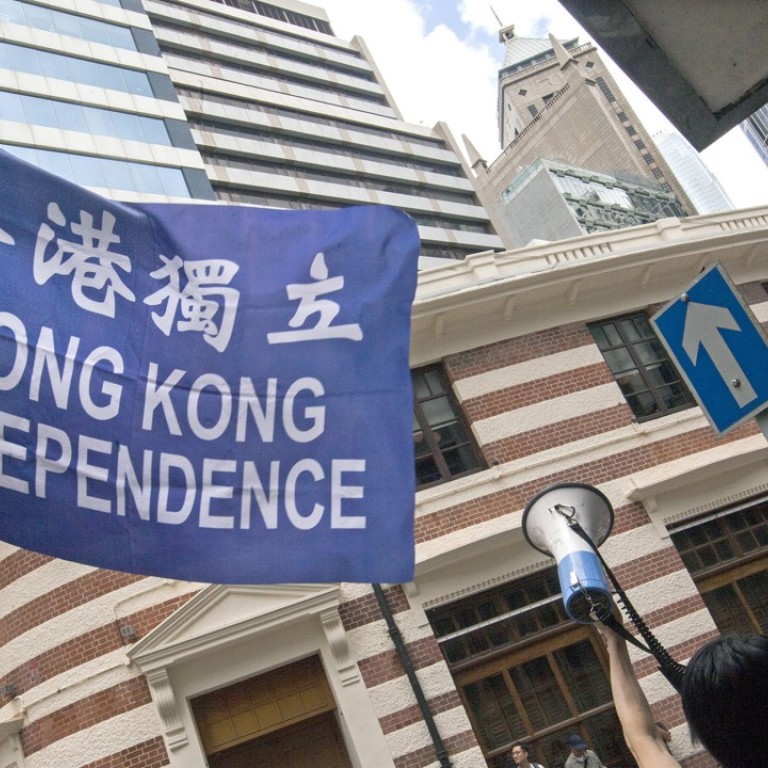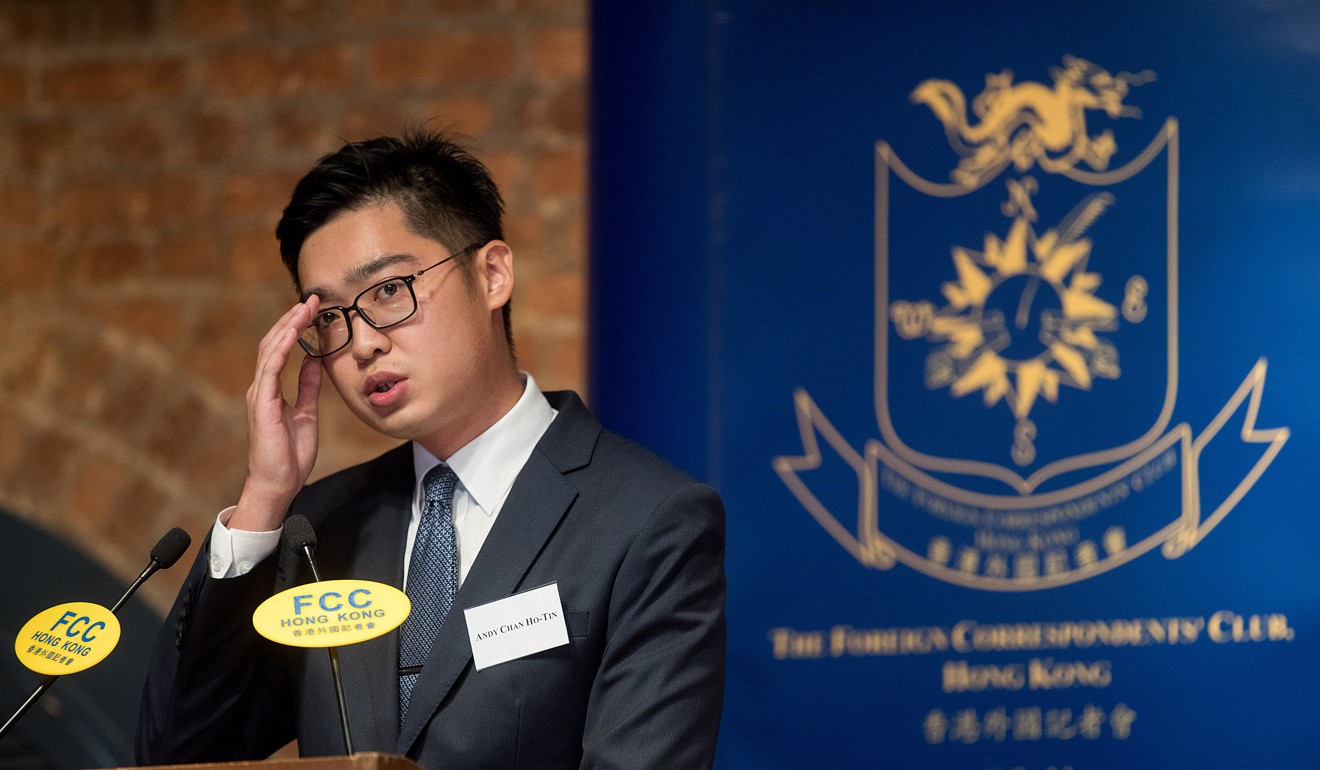
Separatist leader Andy Chan’s FCC talk and call for US sanctions on Hong Kong cited as new evidence for proposed party ban
Assistant societies officer says in report to security minister that Hong Kong National Party’s commitment to independence and call for sanctions a threat to China’s national security
Assistant Commissioner of Police Rebecca Lam Hiu-tong, in a report to Secretary for Security John Lee Ka-chiu on Tuesday, said the Hong Kong National Party (HKNP), through remarks made by its convenor Andy Chan Ho-tin, showed it “remained firmly committed to achieving its objective of Hong Kong independence”.

“Through taking part in and speaking at the luncheon at the FCC, the HKNP has taken a positive step to heighten its profile in furthering its unlawful advocacy for Hong Kong independence,” she said in the six-page report, which was accompanied by a 40-page transcript and footage of the talk.
“The [party’s] call for foreign intervention in the internal affairs of China and Hong Kong is particularly alarming.”
She added that Chan’s call for sanctions, which would weaken China’s economy, was a “calculated and tactical move” meant to create “favourable conditions” for the city’s independence.
The report also rejected Chan’s claim during the FCC speech that his party did not support the use of violence, pointing out that the HKNP had on multiple occasions stated its readiness to use force to achieve independence.
In the run-up to Chan’s talk, the FCC was pressured by both China’s foreign ministry and the Hong Kong government to call off the event. But it proceeded with its plans, saying it was not taking a stand and welcomed speakers of all political stripes.
In Chan’s speech, he denounced China as “a threat to all free peoples in the world” and insisted separation was the only solution for Hong Kong, swiftly drawing Beijing’s condemnation.
He painted a dark picture of the city’s freedoms and fate under Chinese rule, describing the past two decades since the handover of sovereignty from Britain as a period of regression rather than progress.
He also called on foreign powers, including the United States and Britain, to step in, asking Washington in particular to put pressure on Beijing by expanding its trade war to Hong Kong.
The [party’s] call for foreign intervention in the internal affairs of China and Hong Kong is particularly alarming
Days later, Chan penned an open letter to US President Donald Trump, reiterating his call for trade and tariff policies against China to apply to Hong Kong. Both China and Hong Kong should also be kicked out of the World Trade Organisation, he said, sparking harsh criticism from the two governments.
The Security Bureau said in a statement on Wednesday it had submitted details of the new evidence it received to the HKNP’s lawyers “for the purpose of making representations as it thinks fit”.
The party has until September 11 to convince the minister to not ban it. This deadline was extended twice from August 7.
Chan on Wednesday told local media he had not yet gone through the new documents but believed the Hong Kong government would ban his party. He said the new report was prompted by Han’s reminder.
“They are definitely related. I believe [the police] are under pressure to do something,” he said.
Legal academic Eric Cheung Tat-ming, of the University of Hong Kong's law school, argued the latest arguments submitted by the police were inadequate to justify the ban.

“The authorities, of course, could condemn what Chan and his party have done, but it should not use its power to strip off one’s freedom of assembly, which is guaranteed by the Basic Law,” he said.
Cheung also lamented there was a growing tendency for the local government to handle dissidents with “a mainland mindset”.
“The line distinguishing the two systems is being blurred now and that is set to fuel more conflicts between the mainland and Hong Kong,” he said.


